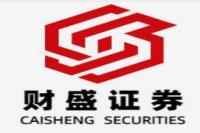Northvolt's Bankruptcy: A Wake-Up Call for Europe's EV Ambitions?
Meta Description: Northvolt's Chapter 11 filing exposes challenges in Europe's bid for EV battery independence, highlighting production hurdles and the dominance of Asian competitors. Explore the crisis, its implications, and the future of European battery manufacturing. Keywords: Northvolt, European battery industry, EV battery, Chapter 11 bankruptcy, lithium-ion battery, electric vehicle, renewable energy, Tesla, Volkswagen, Goldman Sachs.
The fall of Northvolt, once hailed as the "European Tesla," has sent shockwaves through the continent's burgeoning electric vehicle (EV) sector. This isn't just a story about a single company's failure; it's a stark reminder of the monumental challenges facing Europe in its quest for energy independence and its ambition to become a global leader in the rapidly expanding EV market. This isn't just about dollars and cents; it's about a continent's strategic vision crumbling before our eyes. The sheer audacity of Northvolt's initial plans, coupled with the stark reality of its current predicament, leaves us pondering the very future of European battery manufacturing. Did Northvolt bite off more than it could chew? Was it a victim of overly ambitious expansion plans? Or is there something inherently flawed in Europe's approach to competing with the established Asian giants in the battery sector? This in-depth analysis delves into the intricacies of Northvolt's downfall, exploring the underlying issues plaguing Europe's EV dreams, and considering potential paths forward. We'll unpack the technical hurdles, the financial complexities, and the geopolitical implications of this seismic event, offering a nuanced perspective grounded in both hard data and insightful commentary. Buckle up, because this is one bumpy ride!
The Northvolt Debacle: A Case Study in Overambition?
Northvolt’s Chapter 11 filing, with a mere $30 million in cash and a staggering $5.8 billion in debt, is a bombshell. This Swedish battery manufacturer, founded in 2017 by ex-Tesla executives, secured over $10 billion in funding – attracting heavy hitters like Volkswagen, Goldman Sachs, and BlackRock. They aimed to become Europe's answer to CATL (Contemporary Amperex Technology Co. Limited), the Chinese battery behemoth, reducing Europe's reliance on Asian battery supplies. Their slogan, "Let's make oil history," resonated with a Europe keen to embrace sustainable energy solutions. Yet, this ambitious project has spectacularly imploded.
The initial projections were nothing short of breathtaking. Even before their first factory was fully operational, Northvolt had secured orders totaling a staggering $13 billion, with production scheduled well into the 2030s. One founder famously declared their product "already sold out," even before a single battery cell had rolled off the production line. This bold strategy, while initially attracting investors, ultimately proved to be a significant misstep.
The reality, however, was far less rosy. The flagship factory in northern Sweden, hailed as a model of advanced battery manufacturing, consistently underperformed, achieving less than 1% of its planned capacity. Despite this glaring shortfall, Northvolt aggressively pursued expansion, planning to quadruple the factory's size and establish new facilities across Europe and North America. This rapid expansion, fueled by optimistic projections and substantial funding, laid the groundwork for the company's eventual financial collapse.
Internal accounts paint a picture of a company struggling to manage its rapid growth. Multiple sources, including former and current employees interviewed by the Financial Times, point to an attempt to juggle too many projects simultaneously, leading to a cascade of accumulating problems. The inherent complexity of battery manufacturing, requiring precision engineering, advanced materials, and strict quality control within a highly specialized environment, was clearly underestimated.
The European Battery Dream: A Reality Check?
Northvolt's struggles aren't an isolated incident. They highlight broader issues within Europe's EV ambitions. The global lithium-ion battery market is heavily dominated by Asian manufacturers, with China alone accounting for over 70% of production. Northvolt, along with other European startups, invested billions of dollars in building domestic battery production, betting on fast-growing demand. However, that demand hasn't materialized as quickly as some predicted, leaving many projects struggling to stay afloat.
The consequences extend beyond Northvolt's bankruptcy. ACC, a joint venture between Mercedes-Benz and Stellantis, halted construction at its German and Italian plants. Industry analyses suggest that a significant portion (over 25%) of currently announced European battery production capacity may never materialize. This overestimation of demand, coupled with the underestimation of the technical and logistical challenges involved in battery manufacturing, paints a concerning picture for Europe's battery ambitions.
The reliance on external funding and the speed of expansion also played a critical role in Northvolt’s demise. The company's aggressive expansion strategy, while impressive in its ambition, seems to have outpaced its ability to execute and manage the resulting complexities. This highlights the need for a more balanced approach, focusing on sustainable growth and operational efficiency rather than solely on rapid expansion.
The Geopolitical Implications
Northvolt's failure carries significant geopolitical implications. Europe's push for energy independence and its desire to reduce reliance on Asian battery manufacturers have suffered a major setback. The continent's strategic goal of building a robust domestic EV supply chain is now facing serious headwinds. This dependence on external suppliers for critical components like batteries leaves Europe vulnerable to global supply chain disruptions and geopolitical instability. The current situation underscores the need for a more coordinated and strategic approach to developing a sustainable and resilient battery industry within Europe.
The situation also highlights the competitive landscape. Leading battery manufacturers are predominantly located in China, South Korea, and Japan, with CATL holding a significant market share. European companies are facing intense competition, not only in terms of production capacity but also in technological innovation and cost-effectiveness. This necessitates a more pragmatic approach, potentially including strategic partnerships with Asian companies to leverage their expertise and experience.
A Path Forward: Collaboration and Pragmatism
Experts suggest that European battery manufacturers need to adopt a more realistic and collaborative approach. Instead of trying to compete head-to-head with established Asian players on sheer scale, a more strategic focus on niche markets and specialized technologies might yield better results. A more open attitude towards collaboration, including strategic partnerships with Asian manufacturers, could provide access to critical technologies and expertise, accelerating the development of a competitive European battery industry. Rather than a purely nationalistic approach, a collaborative, pan-European strategy is needed to achieve sustainable growth and overcome the challenges faced by the industry.
The key to success lies not just in technological innovation but also in operational efficiency, risk management, and collaboration. This requires a shift from an overly optimistic outlook to a more pragmatic and realistic approach. Europe needs to learn from Northvolt's failures and adopt a more sustainable and balanced strategy for developing a competitive battery industry.
Frequently Asked Questions (FAQs)
Q1: What caused Northvolt's bankruptcy?
A1: A combination of factors contributed, including overly ambitious expansion plans, underestimation of manufacturing complexities, slower-than-expected market growth, and ultimately inadequate funding.
Q2: What is the impact of Northvolt's bankruptcy on Europe's EV ambitions?
A2: It's a significant setback, highlighting the challenges of building a competitive domestic battery industry and increasing concerns about Europe’s reliance on Asian suppliers.
Q3: What is Chapter 11 bankruptcy?
A3: Chapter 11, under US bankruptcy law, allows a company to reorganize its finances and operations while continuing to operate, aiming to emerge from bankruptcy as a viable entity.
Q4: What role did investors play in Northvolt's downfall?
A4: While initial funding was substantial, the rapid expansion likely strained resources and investor patience. Goldman Sachs, a major investor, is reportedly writing off its investment.
Q5: What is the future of European battery manufacturing?
A5: The future remains uncertain. A more pragmatic and collaborative approach, potentially including strategic partnerships with Asian companies, is crucial for Europe to build a competitive battery industry.
Q6: What lessons can be learned from Northvolt's experience?
A6: The need for a realistic assessment of production complexities, a more balanced expansion strategy, and greater collaboration within the industry are key takeaways.
Conclusion
Northvolt's bankruptcy is a harsh but crucial lesson for Europe. It underscores the complexities of battery manufacturing, the fierce global competition, and the need for a more realistic and collaborative approach to achieving energy independence and EV leadership. While the immediate future looks challenging, the long-term prospects for a thriving European battery industry aren't necessarily doomed. A shift in mindset, a focus on sustainable growth, and a willingness to collaborate, both within Europe and globally, will be crucial for navigating the path ahead. The race is far from over, but Europe needs to recalibrate its strategy to compete effectively in this pivotal sector.



